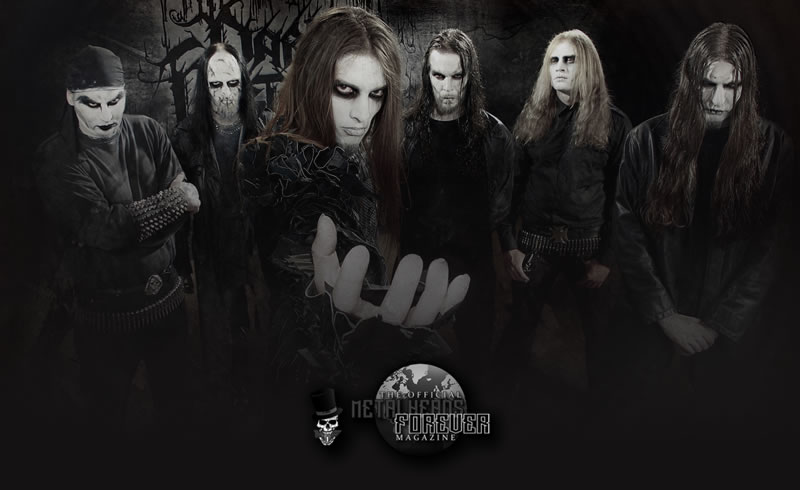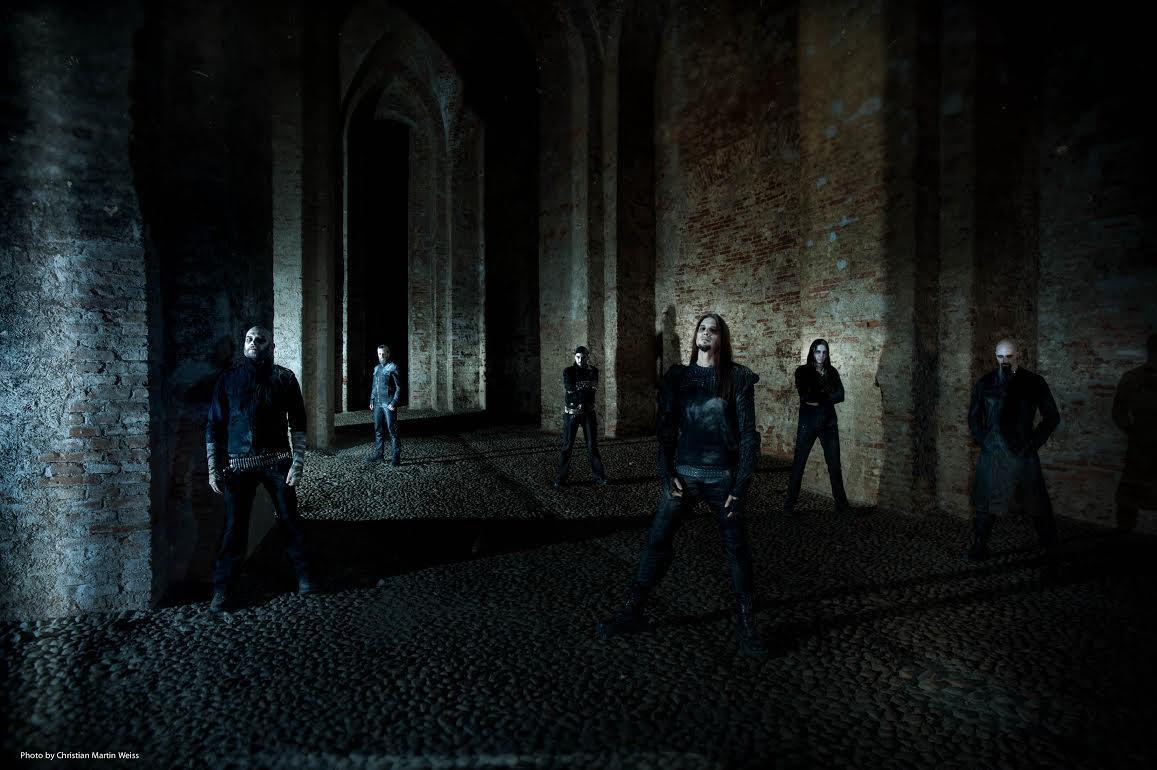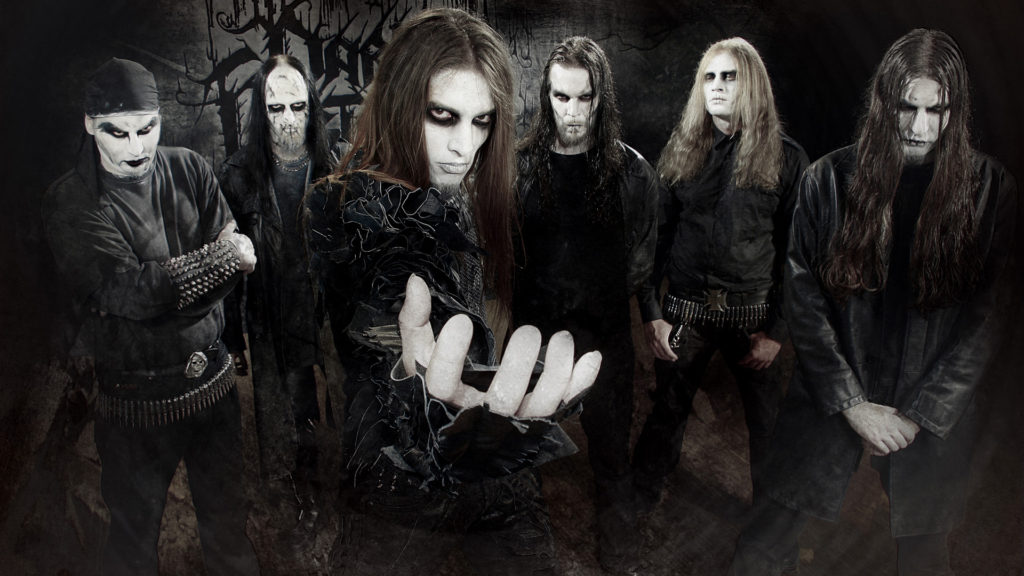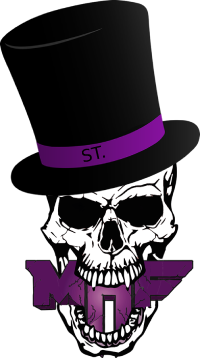“Dark Fortress” Interview by Christina Thompson
Originally, the band is over two decades old. At this point, only Asvargr is the sole remaining original member. Do you feel that the changes in members have been what has propelled the continued success of Dark Fortress? The “freshness” and progression of your music?
Seraph: Interesting idea, but I don’t think I would agree with that. Since our second album “Profane Genocidal Creations” the core songwriters have been the same, mainly V. Santura, who is responsible for probably more than 90% of Dark Fortress’s music written since then, as well as Asvargr, with occasional input from other members.
It also has to be said that since 2001, when V. Santura and I joined the band, there have only been two changes in line-up. Granted, Morean’s contributions for the band have indeed brought fresh and important input to our music and lyrical content (our “new” keyboard player Phenex only joined after our last album “Veneral Dawn”, so he hasn’t had the chance yet to contribute to the songwriting), which would support your theory.
But generally, I think the progression in our music comes more from the desire to not repeat ourselves, and explore new dimensions within the framework and concept of what we think makes Dark Fortress “Dark Fortress”.
Without sticking to one generic label, please describe to our MHF community Dark Fortress’s expression of music. Your style, the evolution of it, as well as what it means to you.
Seraph: I have always thought of Black Metal as a musical expression of inner abysses, in other words a vehicle to express the negative aspects of your life, your nightmares, traumas, your “dark side” if you will, through art, and to create something beautiful from that which haunts you. And I have always seen Dark Fortress as exactly that, which is why I don’t mind if someone puts the label “Black Metal” on our music, even though I personally don’t care much for labels, as they are more important to the people who have to market the music, than to the musicians themselves. So even though it is true that the band has changed quite a lot stylistically over the years, I think this core principal has never changed, which is why this evolution has always felt very natural to me. And to be honest, I don’t like bands that don’t change musically over a period of more than two decades, so I think I would not be part of this band anymore if we had not done that.
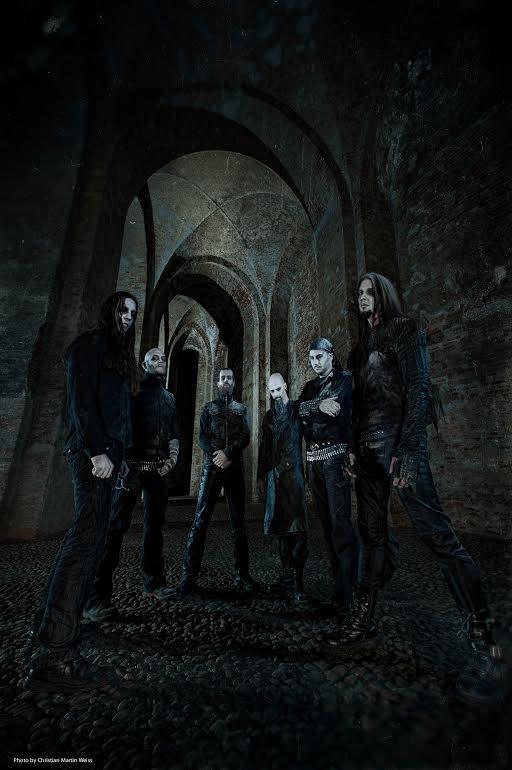 With the band scattered geographically, how do you go about the process of creating? Is everyone involved?
With the band scattered geographically, how do you go about the process of creating? Is everyone involved?
Seraph: That depends on the record. “Ylem” for example was almost entirely written and arranged by V. Santura, to the point where he had made elaborate pre-productions, which the final recordings where closely based on. So there was little room left for the other musicians (except for Morean’s lyrics of course) to bring some of their input into his songs.
For “Venereal Dawn” we had changed the process though, partly on my request, to be able to let the songs grow a little more organically, and to jam together to come up with the final arrangements. So even though V. Santura still wrote the skeleton of the songs and laid out their structures, instead of receiving finished demo tapes and learning what he had in mind, we would meet in the rehearsal room and just play with different ideas, until we found something that worked for everybody.
Personally, i found this way of working more satisfying, and I am still very happy with the result.
How important is the value/quality of lyrics and concepts to you as a band. Just as significant as the melody? My take on you is that it is a blending of creativity, music, spontaneity, movement, feeling, skill and experience as well as the poetic nature of the lyrics themselves. Am I even close?
Morean: In relation to the world around him, an artist can either comment on this world, taking inspiration from his reality, or offer an alternative world which the listeners can lose themselves in. We clearly belong to the latter category. Personally, I’ve always been an escapist, and nothing fuels my imagination more than the exploration of inner worlds that don’t exist in our outside reality. We see our albums very much as creations of such worlds – especially the concept albums. So the lyrics are of course an integral part of those worlds, and they give me a great pallet of expression to add to the sonic universe of Dark Fortress. Santura once joked that lyrics in music are only there so you don’t have to do the vocals on “la-la-la”… but it’s obvious that a compelling scenario and powerful words make a song stronger, and if you already try to say something, I try to find something worthy to say. I’m fully aware that most listeners maybe don’t pay too much attention to the words, and don’t feel like pulling out a dictionary just to know what the hell the guy is growling about. But to me, the lyrical concept are the root of my performance also. I wouldn’t be able to put much emotion into crappy cliché words, and I’m sure you’d hear that in the final song. Plus, good lyrics were important to this band long before I joined, and I have always been happy to put extra effort into them. And, not least, it’s fun to write the stuff also!
How do you balance the progression forward as a band, always reaching for original, new ideas, yet try and keep yourselves tied to the core of who Dark Fortress has always been?
Seraph: It is not always easy to be honest, also because we are six people with very different opinions and musical backgrounds. But even though I sometimes get frustrated by the limitations – which we admittedly impose on us ourselves – I try to see them more as a challenge to my own creativity as a drummer, rather than seeing them as a burden.
I find it interesting to see what new things I can come up with within the same framework, and to find ways to incorporate new influences from different genres of music into the relatively tight corset of Dark Fortress music.In my personal opinion I think that we could go further in exploring new ideas than we have done so far, but I know that it is a very thin line between innovation and losing your identity as a band, so it’s probably a good thing that I’m not the only one in charge of where our musical direction is headed, haha.
Venereal Dawn took three years to make. With its superbly haunting guitar melodies and melancholy-evoking lyrical presence, it was well worth the wait. How much longer for the next album?
Seraph: I’m glad to hear you hold “Venereal Dawn” in such high regards, thank you. There is no concrete schedule for a new album yet, but I know that V. Santura has written a lot of material already, and we’re aiming for the second half of 2017 to start working on his ideas.
I really can’t say yet when we will start the recording process, but once we do have a better idea, we will of course let our fans know through our website and social media channels.
What do you hope to see for the future of Dark Fortress? For metal in general?
Seraph: I don’t know, and I’m not too concerned about it to be honest. We will focus on making another record, what happens then remains to be seen. It is impossible for this band to really grow and become much bigger than it is now, simply because of everybody’s personal lives not really permitting that, and that’s a fact that I have accepted, since it is more important to me to keep the members of Dark Fortress together, than to try to “make it” by any means necessary. I find that a ridiculous concept for an extreme metal band anyhow.
As for metal in general, what I would hope to see for this genre is what I hope to see for music and art in general, that the audience treats the arts again with the respect they deserve, stop thinking that they are entitled to get anything they want for free, go to shows, support the artists they believe in… I’m also extremely tired of people saying that music used to be so much better, and that there aren’t any good bands around anymore. There is so much amazing music out there, it’s ridiculous. It’s just much harder for new bands and artists to be heard, and get recognized. Look at festival line-ups for example, it’s the same line-up every year, on all the big festivals. The same headliners, that have been headliners now for years, or even decades. How often do you really need to see Slayer or Megadeth headlining all the festivals? And I say that as someone who really enjoys seeing Slayer live…
So instead of complaining that music sucks nowadays, go out there and find the new bands, and support them, so that maybe one day they can headline.
The artwork for Venereal Dawn is incredible! Can you tell us a bit about that please?
Morean: Thanks! The artwork came to me in the same moment I had the principal idea for the concept, coming out of the Mexican jungle in a van on a bumpy dirt road, when all of a sudden the clouds broke into a spectacular display of light and shade in the skies. When it came to creating the artwork, we knew as a band what we wanted, which was something different to the standard CGI-Photoshop-stuff you see on most albums nowadays. A good friend of mine, Daniel van Nes, had offered his services before for artwork, and he’s one of the most interesting and technically most virtuosic artists I’ve ever met. So we commissioned an actual oil painting from him. The fact that he made a series of spectacular drawings for every song also helped to lift the whole album to a higher level, and it was only logical that we do the video of Chrysalis also with him. Like that, we kept the creative forces very close to us, just a handful of good people who know and understand each other well, and no watering down of ideas because of people from outside our inner circle getting involved. I was never happier with how the visual aspect of an album I was involved in turned out.
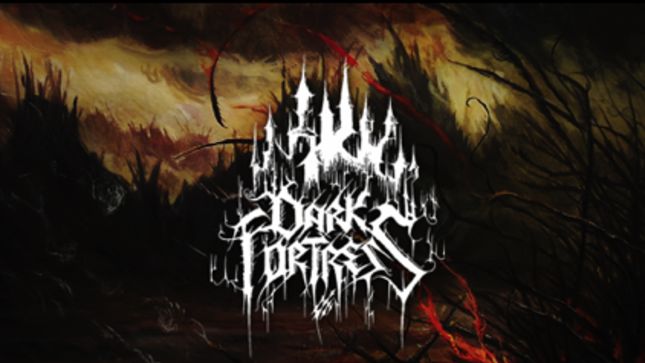 What is a drawback as well as a plus to releasing an album today as opposed to, say, when you first began?
What is a drawback as well as a plus to releasing an album today as opposed to, say, when you first began?
Morean: Drawbacks these days are that there are exponentially more bands around than in the beginning days of extreme metal, and that at the same time, the market pretty much collapsed. The time of icons is over, and music in general has become a commodity that everyone wants everywhere at all times for free. So what you do with your own little band has much, much less meaning in the big picture than 20 years ago.
The up side of this, however, is that it’s become much easier with new technologies to produce an album yourself. We spend many months on an album production, and if we had to pay an external studio, we’d have to sell about 20 times as many copies as we do to even cover the studio costs. And the good thing about the internet is that everybody, also in remote countries, has access to all music, and can join into a global community. That may not be too important for us in Europe, but to people in “difficult” countries, this allows them to take part in our global tribe of metalheads. And that’s worth a lot.
Last question: Will we get to hear more of Seraph’s kick-ass drumming [as opposed to looped samples] on the next album that we got to experience on Venereal Dawn?
Seraph: Well, first of all thank you for the compliment, I’m glad you enjoy my drumming. But I have to admit that I’m a bit baffled by your question, are you implying that we used loops instead of me actually drumming on albums prior to “Venereal Dawn”?
It is true that we approached the drums a bit differently on “Venereal Dawn” than on “Ylem” for example, as I have already described in your question about songwriting earlier.
Nevertheless, the drums have always been played by me in the studio, and not programmed or looped.
But maybe your observation, even though incorrect, is a sign that the way we approached the drumming and songwriting on “Venereal Dawn” is the way to go, and that my wish to be more involved again in the creative process of the drum arrangements did pay off after all…
In closing, any words or advice for your fans and readers of MHF? Thanks again for taking the time speak with us and all the best!
Seraph: Thank you for your continuing interest in this band, and all the support over the years. I wouldn’t know what advice I’d have to give to our fans, I just hit things with sticks…
Keep an eye out for news about our new album, and follow us on www.facebook.com/officialdarkfortress and www.darkfortress.org. Thank you!
Christina Thompson/MHF Magazine

